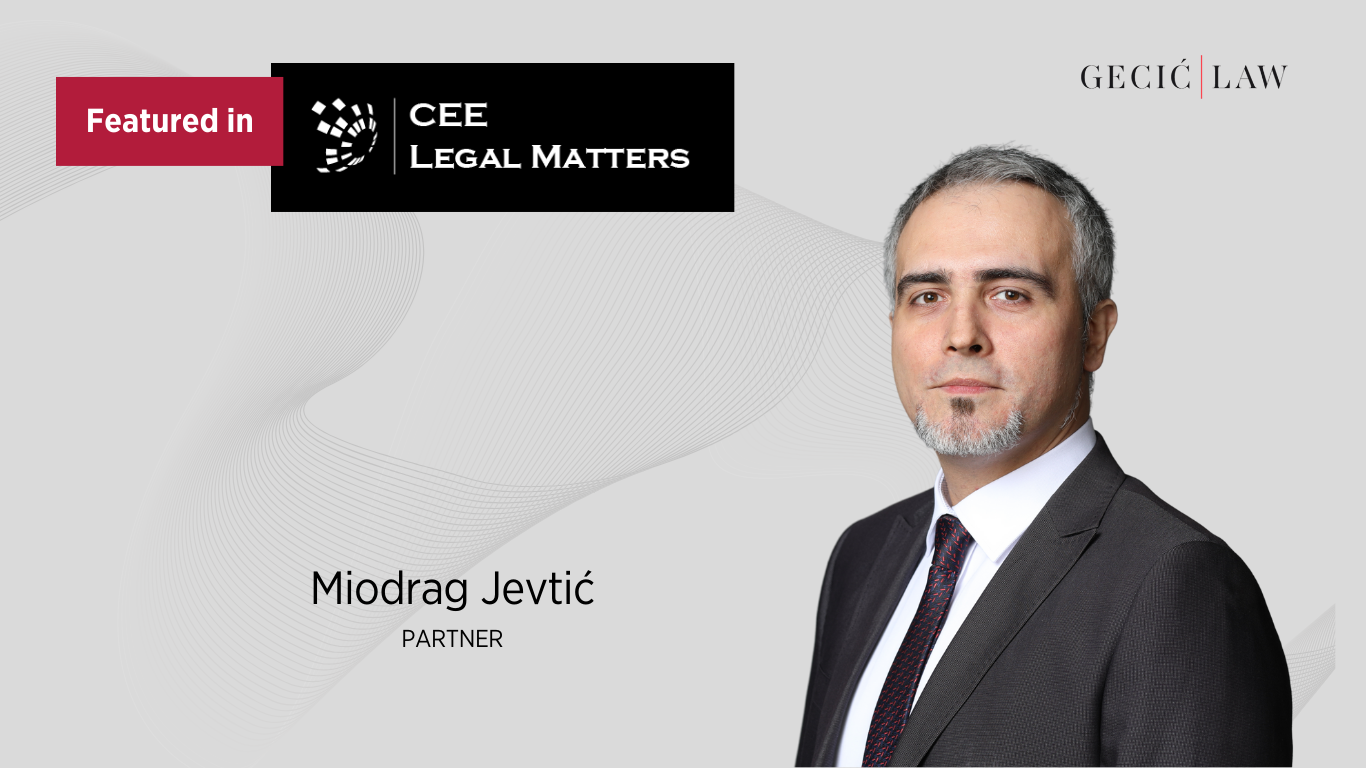

In a recent The Buzz interview with CEE Legal Matters, our partner Miodrag Jevtić discussed Serbia’s growth trajectory, driven by foreign direct investment (FDI), infrastructure developments, and sectoral advancements. The conversation highlighted the key factors contributing to Serbia’s growth and opportunities that lie ahead. The full interview can be accessed here.
“Serbia has been very busy,” Miodrag remarked. He explained that Serbia’s that growth is fueled by FDIs, which may reach EUR 5 billion this year. “Serbia attracts significant FDI, benefiting export-oriented sectors,” he said. With its strategic location and EU candidate status, Serbia’s GDP growth forecast is at 3.8% this year.
Miodrag Jevtić spoke about the importance of infrastructure development in sustaining this growth, particularly large-scale transport, energy, and telecommunications projects. “A major milestone for Serbia is the upcoming Expo 2027. This is indeed a project of national significance. It will see comprehensive road and railway developments under the ‘A Leap Into the Future’ initiative,” he added. He stresses that infrastructure development is essential for maintaining long-term economic momentum.
The interview also touched on Serbia’s mining sector. The focus is currently on lithium, which plays a crucial role in the electric vehicle (EV) industry. “Serbia has significant potential in lithium mining. The government is actively working to develop a complete supply chain for EV and battery production,” Jevtić explains. The recent strategic partnership with the EU further enhances opportunities in this sector, with new electric vehicle models already being produced in Serbia. This, Jevtić says, could be transformative for the country’s industrial landscape.
Another critical area Jevtić discusses is Serbia’s energy transition. The country is undoubtedly shifting from coal to renewable energy sources, including solar, wind, and hydropower. “Serbia has accelerated its efforts to improve energy efficiency. We’ve just recently seen the launch of the largest solar project in the country,” Jevtić reports. This shift is vital not only for sustainability but also for aligning Serbia with EU standards, a key factor for maintaining strong trade relations with the bloc.
Jevtić also highlights Serbia’s progress in aligning with EU standards, particularly in the fields of non-financial reporting and environmental, social, and governance (ESG) compliance. “Many Serbian companies have already started adopting EU-aligned ESG standards, which is essential for attracting FDI and securing export markets within the EU,” Jevtić explains. The push for regulatory alignment reflects Serbia’s commitment to meeting the expectations of EU customers, who increasingly prioritize sustainable and socially responsible business practices.
Lastly, Jevtić provided an update on Serbia’s digital services sector, noting that the regulatory framework for 5G implementation is underway by the end of the year. “The rollout of 5G will significantly improve digital infrastructure, and the legal framework will need to evolve to support these advancements,” Jevtić concludes.
For further details, read the full interview on CEE Legal Matters here.